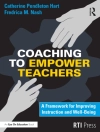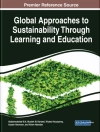From corporate corruption and the facilitation of money laundering, to food fraud and labour exploitation, European citizens continue to be confronted by serious corporate and white-collar crimes.
Presenting an original series of provocative essays, this book offers a European framing of white-collar crime. Experts from different countries foreground what is unique, innovative or different about white-collar and corporate crimes that are so strongly connected to Europe, including the tensions that exist within and between the nation-states of Europe, and within the institutions of the European region.
This European voice provides an original contribution to discourses surrounding a form of crime which is underrepresented in current criminological literature.
Innehållsförteckning
1. Introduction: In Pursuit of a European Dialogue on White-Collar and Corporate Crimes – Nicholas Lord, Éva Inzelt, Wim Huisman and Rita Faria
Part 1: Researching White-Collar and Corporate Crimes in Europe
2. Using Grid-Group Cultural Theory to Assess Approaches to the Prevention of Corporate and Occupational Crime: The EU as a Natural Experiment – Jeroen Maesschalck
3. How to Prioritise White-Collar Crime Research in the EU in Relation to Internal and External Security – Sunčana Roksandić
4. Corruption and Comparative Analyses Across Europe: Developing New Research Traditions – Nicholas Lord, Karin Van Wingerde and Michael Levi
Part 2: Financial Crimes and Illicit Financial Flows
5. Identifying ‘Europeanness’ in European White-Collar Crime: The Case Study of Criminal Responses to ’Market Abuse” – Sarah Wilson
6. Anti-Money Laundering and the Legal Profession in Europe: Between Global and Local – Katie Benson
7. Responding to Money Laundering across Europe: What We Know and What We Risk – Karin Van Wingerde and Anna Merz
Part 3: White-Collar Crime: European Case Studies
8. Food Production Harms in the European Context: The EU as an Enabler or a Solution? – Ekaterina Gladkova
9. Understanding the Dynamics of White-Collar Criminality in Ukraine – Anna Markovska and Iryna Soldatenko
10. Labour Exploitation and Posted Workers in the European Construction Industry – Jon Davies
11. Struggles in Cooperation: Public–Private Relations in the Investigation of Internal Financial Crime in the Netherlands – Clarissa Meerts
12. Cartel Cases: From State Negligence to Direct Political Interest in Hungary – Éva Inzelt and Tamás Bezsenyi
Part 4: Responding to White-Collar Crimes in Europe
13. Silencing Those Who Speak Up against Corporate Power: Strategic Lawsuits against Public Participation (SLAPPs) in Europe – Judith Van Erp and Tess van der Linden
14. Same Difference? Reflections on the Comparative Method in White-Collar Crime Research in Ireland and the US – Joe Mc Grath and Deirdre Healy
15: Settling with Corporations in Europe: A Sign of Legal Convergence? – Liz Campbell
Part 5: Observations from Outside of Europe
16. Observations on European White-Collar Crime Scholarship from the United States – Melissa Rorie
17. What Is ‘European’ about White-Collar Crime in Europe? Perspectives From the Global South – Diego Zysman-Quirós
18. Learning (Multiple) Lessons From Europe: Criminological Scholarship on White-Collar Crime – Fiona Haines
Om författaren
Rita Faria is Assistant Professor in Criminology at the University of Porto, Portugal.












